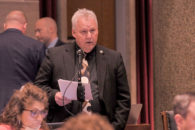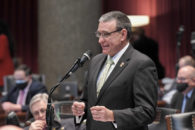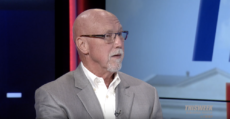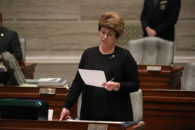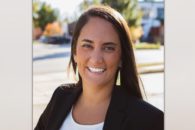As elected officials vacate Jefferson City and return to their families and jobs, The Missouri Times is taking a look at legislative priorities that may headline next year’s session. The “Next Steps” series will showcase certain legislative issues and take a look ahead at what could come next.
Allowing candidates to utilize campaign funds for certain child care expenses could open the door for numerous Missourians to run for office, according to Rep. Maggie Nurrenbern.
Nurrenbern, a freshman Democratic lawmaker from Clay County, filed legislation last year to allow campaign funds to be used for child care expenses that are a direct result of the campaign. It did get a committee hearing — something she said was a success in and of itself — but stalled before the session ended.
But Nurrenbern said this legislation will be a priority again for her next session.
“One of the things I recognized when I decided to run [for the statehouse] is I have a tremendous support network,” Nurrenbern said. “Oftentimes simply child care is the prohibitive barrier for people running for office. We have very few parents of young children in the legislature.”
Campaign funds are able to be used on child care at the federal level, the Federal Elections Commission (FEC) said in 2018. And 22 states have approved it on the local level either through legislation or ethics commission rulings, according to a recent report from Vote Mama Foundation.
Kansas and Nebraska have approved the use of campaign funds for child care through ethics commission rulings; Arkansas through legislation this year.
Missouri state statute says campaign contributions can be used for “any ordinary expenses incurred relating to a campaign [and] any ordinary and necessary expenses incurred in connection with the duties of a holder of elective office.” However, that language is vague, and a legislator would need to be able to precisely justify the use of campaign funds for child care purposes in line with the statute.
Wendy Doyle, president and CEO of the non-partisan United WE, said she’s heard from countless women through her organization’s town halls that child care is the No. 1 obstacle for those considering running for office.
“We need to build the pipeline for good potential candidates to run for elected office. This could be one barrier that’s taken off the table, and maybe it’s the tipping point to make women want to go on and run for elected office,” Doyle said. “We know it takes a lot of people, a team, to be able to actually put a campaign together, but I think it would create opportunities to bring new candidates forward.”
The issue has had bipartisan support — across the country and in Missouri. Aside from Nurrenbern, a Republican lawmaker filed similar legislation last session. Both bills were heard in the House Elections and Elected Officials Committee in April where they stalled.
A vast majority of the more than two dozen witness statements submitted for both bills were in support of the measure. A representative for Students for Life Action, a pro-life grassroots organization, also testified in support of the proposal.
“We support [the legislation] because we know firsthand that both women and men can achieve their professional dreams while parenting,” Reagan Barklage said. “In order to create a culture of life, we must support efforts that set working parents up for success. Children are a blessing, not a burden.”
Vote Mama Foundation said it was a “partner” on Nurrenbern’s legislation which prohibited expenditures going toward a candidate’s family or member of the household. The Missouri Ethics Commission, which did not take a position, provided technical support.
“The biggest concerns about it were there needs to be strict reporting requirements and documentation to make this happen. We already do that for so many things. I have to show proof of my purchases; I have to document all of this appropriately,” Nurrenbern said. “These are private funds from my donors, and it’s up to them if they want to help me run for office or serve in office. We’re not talking about public dollars. We’re talking about private funds, and we’re the ones who are accountable to our campaign donors.”
Since the FEC ruling, 51 federal candidates have used campaign funds to pay for child care, according to the Vote Mama Foundation report.

Kaitlyn Schallhorn was the editor in chief of The Missouri Times from 2020-2022. She joined the newspaper in early 2019 after working as a reporter for Fox News in New York City.
Throughout her career, Kaitlyn has covered political campaigns across the U.S., including the 2016 presidential election, and humanitarian aid efforts in Africa and the Middle East.
She is a native of Missouri who studied journalism at Winthrop University in South Carolina. She is also an alumna of the National Journalism Center in Washington, D.C.
Contact Kaitlyn at kaitlyn@themissouritimes.com.




















